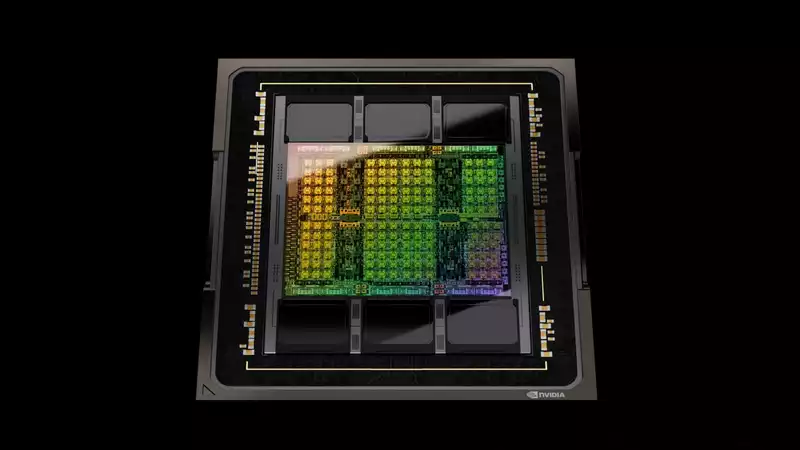In China, the back alley market for imported Nvidia graphics cards is reportedly bustling, and while these chips have been in demand worldwide since the rise of large language models such as ChatGPT, China has other challenges. That's because the U.S. banned Nvidia from exporting its most powerful AI accelerators last year.
China can no longer import Nvidia A100 or H100 GPUs directly. AMD's MI250 is also blocked from being sold to the country, before AMD had a chance to swoop in with a huge Instinct card.
China will have to make do with less capable options; AMD's MI100 announced last September that it was unlikely to be affected by US sanctions, and Nvidia's A800 and H800 are such options. These two Nvidia designs are said to be intentionally bandwidth-limited to comply with new export regulations.
But apparently not enough for some. Reuters reports that an underground chip market has emerged in response to the new export restrictions.
These chip markets are said to be located primarily in Shenzhen, one of China's largest technology hubs, and according to vendors Reuters spoke with, for AI accelerators, for example, customers willing to pay over-the-odds for a small amount of Nvidia A100 GPUs, they said.
According to the report, the card sells for about $20,000, roughly double the typical price of $10,000. However, the high demand for these chips due to the recent AI acceleration boom, with Nvidia's Wall Street value surpassing $1 trillion, has also helped keep prices high.
By comparison, during the crypto-mining craze, double the price of a graphics card was quite a bargain.
Reuters spoke to 10 vendors who claimed they could "easily" secure small quantities of A100 cards, but these small operations are unlikely to be enough for China to ramp up large-scale language modeling and other large-scale AI operations. The U.S. has introduced new export controls on China in large part because it fears that these cards will also be used in a military context. Large-scale AI operations and training of large-scale models require large numbers of cards, tens of thousands, depending on the task.
Instead, these smaller distributors are likely a way for equally small companies and startups to get the computational power they need to run their applications. Universities, local governments, and AI startups have all been touted as having sought out these back-alley cards at some point.
One Hong Kong-based company was looking to buy two to four A100 cards for their startup. There is no whiff of a warranty here, no customer support in case something goes wrong.
The U.S. may change its stance on restricting business with U.S. companies, but it may still further tighten its restrictions on the U.S. The current measures have already had a "substantial impact" on China's access to high-end GPUs. China, of course, is in full opposition to the sanctions, noting that when the first GPU restrictions were announced in September, the U.S. was attempting to implement a "technology blockade" against the country.
Nvidia has stated that China could suffer losses if it were blocked from purchasing its cards altogether. But of course, the company has made it clear that it will strictly adhere to export controls.
In a statement to Reuters, Nvidia said, "If we receive information that a customer is violating our agreements and exporting restricted products in violation of the law, we will take immediate and appropriate action."
This would not be the first time GPUs have been the target of unfair trade practices. There have been numerous reported cases of attempts to smuggle graphics cards into China, or special administrative regions of China, over the years, including 300 cards in 2021 and 5,840 cards in 2022. However, this recent underground market is a bit different. Rather than bypassing onerous taxation and import fees, it appears that more legitimate companies and users of the cards are relying on these vendors to keep their AI jobs.
.

Comments